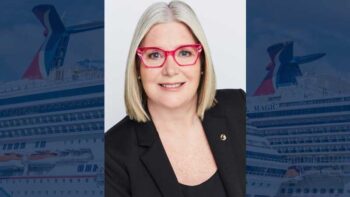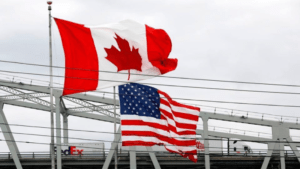
The Cruise Line Industry Association (CLIA) is crying foul at the CDC’s latest guidance for cruise ships in U.S. waters.
The CDC’s Conditional Sail Order expired 15JAN. At that time, the CDC said that moving forward, cruise lines would be able to ‘opt in’ to a voluntary replacement program. Cruise lines have until next week to opt in.
Although the replacement program is ‘voluntary’, cruise ships in U.S. waters are still regulated by the CDC. It retains the right to issue ‘no sail orders’ to ships it considers to be a threat to American public health.
Details of the CDC’s new ‘voluntary’ program were provided this week, and the industry is not pleased.
First and foremost, the CDC leaves in place its advice for Americans to avoid cruising, assigning cruise travel a level 4, highest risk rating.
In addition, it continues to apply a colour-coded system of classifying every ship in American waters, but with revised metrics.
Any cruise line that opts out of the ‘voluntary’ program will be color-coded ‘gray’ or ‘unknown’ health status, regardless of what measures are being taken to protect those onboard.
“Greater level of COVID mitigation than most any other setting”
CLIA’s response was scathing. It accused the CDC of ‘discrimination’ and vilification of cruising - particularly in comparison to other congregate (crowd) settings in the U.S. and the easing of restrictions in almost all other public situations.
The industry organization’s response called the CDC guidance “out of step with the actual public health conditions on cruise ships and unnecessary in light of societal trends away from more restrictive measures.”
According to CLIA, multi-tiered cruise indicators are “counterproductive” and “confusing” to consumers, and “unworkable in practice,” it added.
“We are confounded by the CDC’s imposition of even more complex and unwarranted measures which ignore empirical evidence that the industry’s protocols have provided a greater level of COVID mitigation than most any other setting.”
"Against this backdrop, we continue to be dismayed by the CDC’s decision to maintain any Travel Health Notice for cruise. CDC has long recognized the paramount importance of vaccination in protecting against COVID-19 and the vaccination rate on cruise ships is close to 100%, whereas on land it is only about 63%,” CLIA pointed out.
“It seems unnecessarily discriminatory against cruise to maintain that the chances of getting COVID-19 on a cruise “is very high” even if you are up to date with your COVID-19 vaccines. This discounts the importance of what the CDC has otherwise promoted as the single most important touchstone for public health and safety."
Sailing on
Meanwhile, just as is happening on land, cruise lines have begun easing some restrictions.
As of 01MAR, masks will be optional (though recommended) for guests on Norwegian Cruise Line. Children under 5 will now be welcome without vaccinations.
NCL's sister cruise line Regent has followed suit, with mask mandates expiring for guests (but not crew) at the end of FEB.
Royal Caribbean is also relaxing mask policies. As of 15FEB, masks will no longer be required in indoor spaces designated for vaccinated guests, including select restaurants and bars as well as entertainment venues.
And on its part, Carnival is also moving with the times. It’s allowing guests of any vaccination status who can prove they’ve recovered from COVID within three months of sailing to skip pre-cruise testing.
This is a trend that seems sure to continue, barring another wave of outbreaks.
CLIA’s response and the cruise lines’ shift towards eased restrictions highlight the increasing disconnect between the cruise industry and the CDC.






